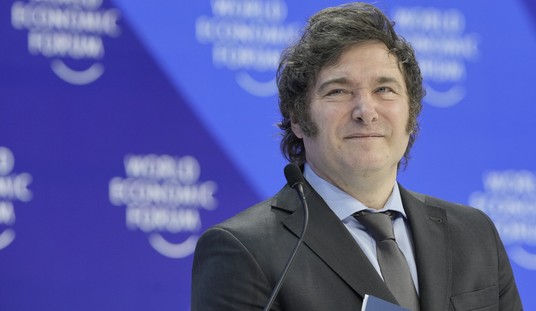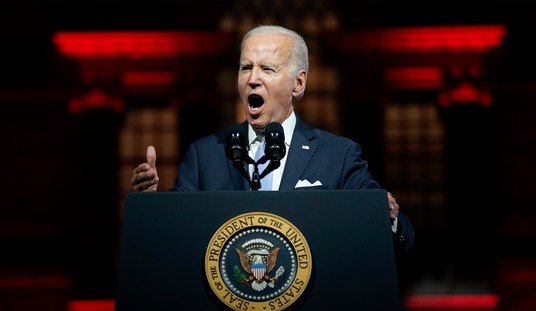Sagebrush Rebel: Reagan’s Battle With Environmental Extremists and Why it Matters Today (Regnery, 2013) by William Perry Pendley, describes how radical environmentalists sparked a revolution against federal land regulation led by head rebel Ronald Reagan. Today, high fuel and energy prices, formerly caused by Carter administration policies, have returned with a new President to blame. Pendley’s book provides valuable lessons for the next Sagebrush Rebel who might try to end the environmentalists’ stranglehold on energy production and American economic potential.
Sagebrush Rebel details Reagan’s history as a conservationist. Conservationism was the original environmentalism. Conservationists considered humans to be stewards of natural resources. As a conservationist Reagan believed in a moral obligation to protect resources for future generations. Conservation’s elevation of human needs is a value thousands of years old and is described in the Old Testament:
You have given him rule over the works of your hands/ putting all things under his feet/All sheep and oxen/ yes, and the beasts of the field/The birds of the air/ the fishes of the sea/ and whatever swims the paths of the seas. (Psalms 8, 6-9)
Throughout the 1970s and culminating in the heavy handed policies of the Carter administration the human-centered conservation movement morphed into the environmentalist movement which revered inanimate objects and animals. The beasts of the fields and fishes of the sea were on par with human needs, or even superior to them.
“People were no longer at the center,” Pendley writes.
People were just part of the biota, no greater and often worse than any living thing. Not only was mankind on a par with the flora and the fauna, it was the enemy of creation.
This pantheistic paradigm was an explicit rejection of thousands of years of Judeo-Christian theology.
Pendley notes that the conservation movement had never been involved in Presidential politics until it rallied behind Carter in 1980. In Carter, and now Obama, the environmentalist movement enjoys a President who rejects Reagan’s human-centered conservationist model.
Sagebrush Rebel describes a 2012 meeting between President Obama and Harold Hamm, owner of Continental Resources in Oklahoma:
I told [Obama] of the revolution in the oil and gas industry and how we have the capacity to produce enough oil to enable America to replace OPEC.
Obama brushed Hamm aside in his response:
Oil and gas will be important for the next few years, but we need to go on to green and alternative energy.
The fruits of Obama’s policies are the same as they were in the late 1970s: high gasoline prices, high fuel prices, diversion of agricultural commodities to inefficient bio-fuel production resulting in high food prices, reduced energy production and a stagnant economy. Obama has added to Carter’s economically illiterate energy policy by wasting billions of dollars in failed solar and wind subsidies.
In the 1980 campaign, Reagan vowed to end the madness:
He depicted a stark contrast between his vision of the future and that of President Carter…. He made common cause with Westerners who were fed up with an arrogant environmental movement that was entrenched in positions of power in San Francisco, New York and especially in Washington.
After he was elected, Reagan was given suggestions prepared by establishment Nixon and Ford advisors who “urged the new President to ‘maintain the momentum of environmental protection.’” Reagan ignored them.
Pendley details what Reagan did instead: he increased oil and gas leasing including on the outer continental shelf and federal lands, unleashed coal mining, and freed American ingenuity to drive down the price of energy:
Reagan deprived these extremists of the aura of inevitability, invincibility and infallibility with which they had been cloaked for almost two decades. Reagan denied them their moral high ground. When they said they spoke for the planet and the needs of all living things not human, he responded that he spoke for the dream of the American people and unborn generations to be free and prosperous.
The future of freedom was also in play. And Reagan knew that a nation which develops abundant energy resources is a nation which prospers. Governments which impair energy production and instead use command economy solutions to prop up inefficiencies will suffer from high energy costs and higher unemployment.
Because Reagan’s America was economically stronger than Carter’s America, the energy-fueled economic expansion affected the Cold War. The inefficiencies of the Soviet Union could not compete with America’s expanding energy output.
Pendley also reminds readers of the uncompromising nature of environmentalists. He recounts Reagan’s recognition of their lack of good faith: The environmentalists, Reagan said, “won’t be happy until the White House looks like a bird’s nest.”
Modern environmentalists aren’t interested in compromise with industry or a government that respects the concerns of all stakeholders. They desire complete victory, even if it means whole industries vanish.
Like so much about Sagebrush Rebel, targets of the new environmental religion will find lessons throughout Pendley’s book. Sagebrush Rebel tells how one principled man and his confidence in the power of American potential could flip the radical environmentalist narrative and make daily life better for all Americans.
*****
images courtesy shutterstock / Tomas1111 / Shai_Halud











Join the conversation as a VIP Member